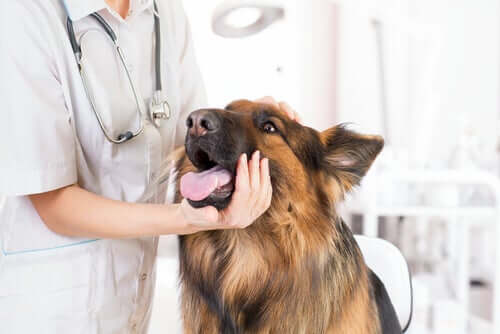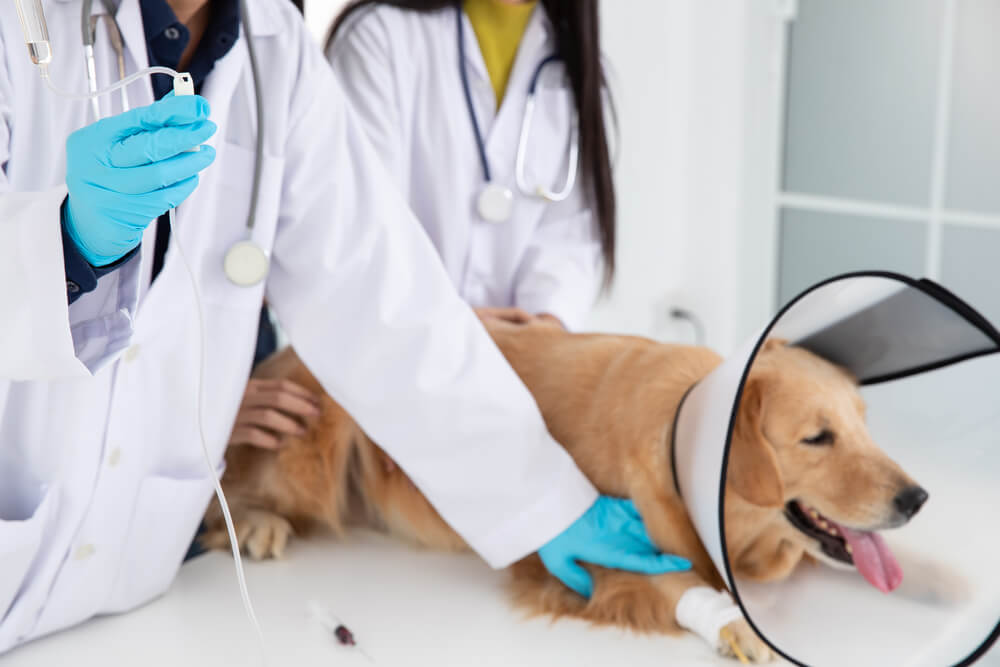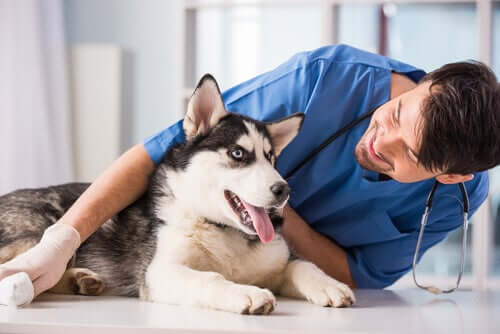Is Your Pet Afraid Of The Veterinarian?

There are many cases where a pet might be afraid of the veterinarian. It’s more common than owners would like it to be. Some dogs, when it’s time to go to the doctor, may bark, growl, hide, or even relieve themselves in the clinic out of pure panic.
Ways animals show they are afraid of the veterinarian
Not all animals feel the same intensity of fear for the veterinarian. It depends on several factors, including your dog’s personality. Some dogs are terrified during their visits to the clinic. Other dogs might bark or growl incessantly in the office as a response to fear. There are also those who tremble and try to hide.
In some cases, the dog may show that they’re afraid of the veterinarian as they enter the clinic. They could show this by marking the doors with urine or feces.
The reason a dog is afraid is that they don’t understand what’s going on, and that the vet is just there to help take care of them. They just know that they go a few times a year to a place with lots of other strange animals. It smells strange and a stranger will touch them. This doesn’t sound like a pleasant experience.
Tips to alleviate the fear of the veterinarian

Make visits more frequent and include incentives
If visits to the vet are more frequent, shorter, and more pleasant, your dog will become more accustomed to them. Even if you only go to greet the staff at the clinic, that little moment could be useful for your pet to get accustomed to the vet bit by bit.
The best time for your dog to get used to the vet is when she’s a puppy. Puppies should visit the vet not just when they’re sick, but also routinely for check-ups.
If you take a trip to the vet just to weigh your dog or give your dog a treat after the visit, it can help your dog have pleasant memories of the clinic.
Getting there by car
The unpleasantness of a trip to the vet starts before you get there. It usually starts in the car.
If your dog is used to riding in the car, it’s not as frightening to your pet. Rather than thinking of the car just as how they go on a dreaded visit to the vet, they’ll think of the car as a way to go to several different places.
Your level of stress
If you, as the owner, are not calm during a trip to the vet, your animal will feel your stress. Your pet watches you continuously and imitates your mood, whether you believe it or not.
This is why it’s important to choose a trusted vet who really does love animals. That way you’ll be calm during the trip and your dog will be too.
Treats
As we mentioned earlier, treats can change how your pet thinks about the vet, and can make it a positive experience. You can give your dog treats while they’re in the waiting room, in the consultation room, and when you’re leaving.
The examination
Depending on your pet’s personality, they may not be tolerant of anyone touching them. This is even more relevant when that person is a stranger in a white coat in a room with a strange smell.
If this is the case, the vet’s examination can turn complicated. It can also be a very traumatic event for the animal. One solution is to have a special way of calming your pet down, such as through games or caresses.
Massages

Along with petting your dog, massages can help strengthen the bond between dogs and humans. If you give your dog a massage before a visit to the vet, you can help make your pet feel calmer and less afraid of the veterinarian.
How do you give your pet a massage? There are a few ways. You can massage their legs, neck, along their spine, or behind their ears.
Another option if your pet is afraid of the veterinarian: Home visits
There are health professionals who visit dogs and cats in their own home. This means there’s no need to make the trip to the vet. This is always more relaxing for animals since they feel safe in their own home.
